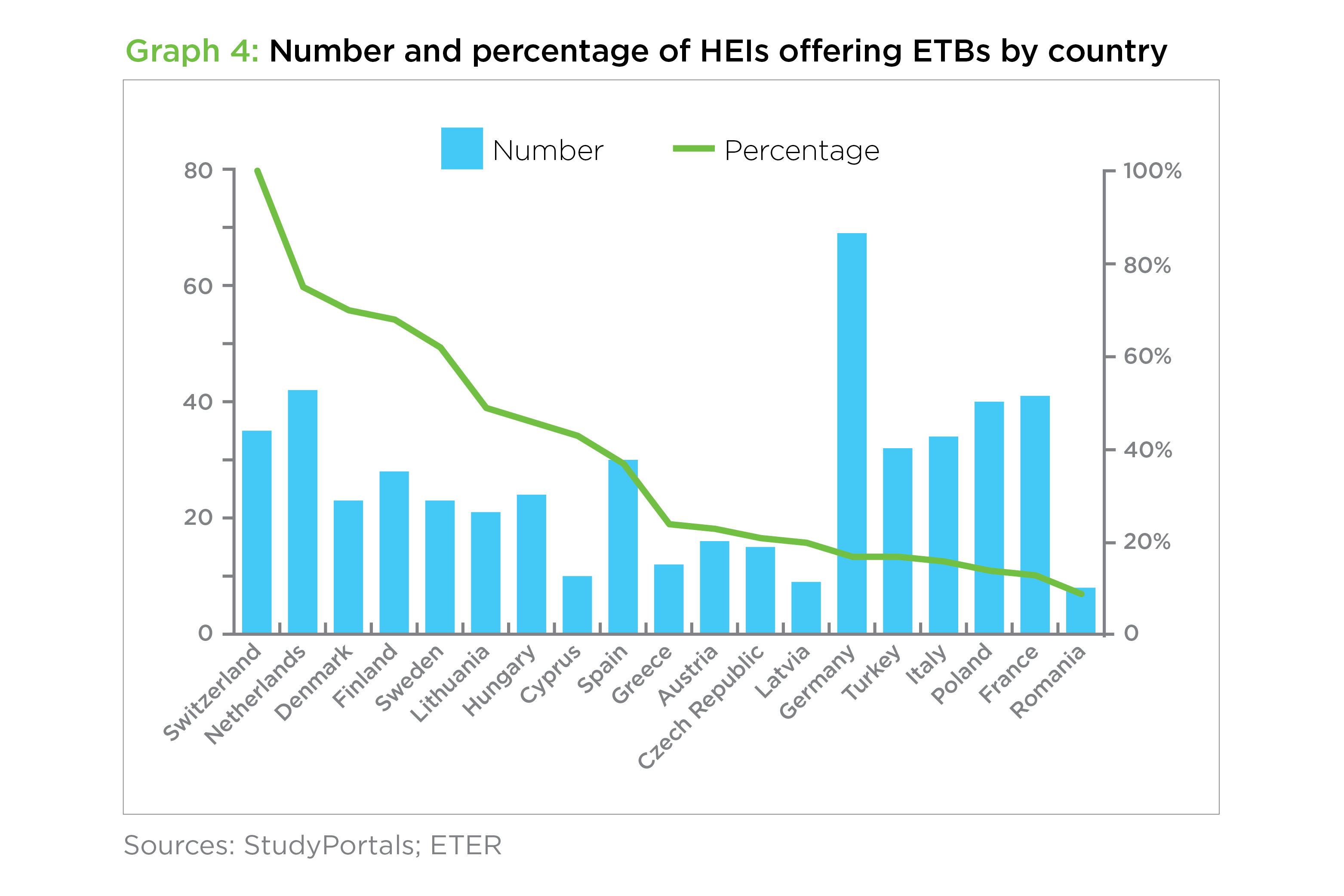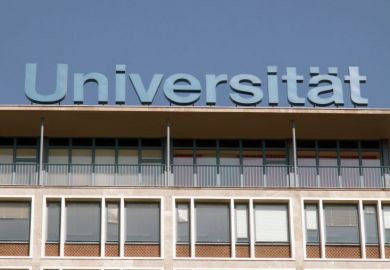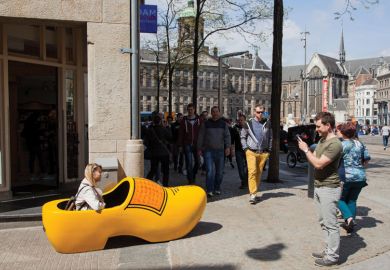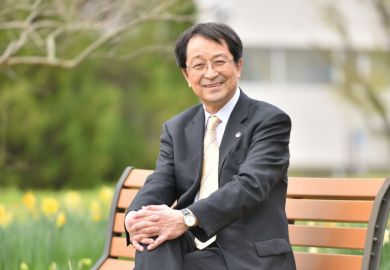The number of English-taught bachelor’s programmes being offered by European universities has increased 50-fold in the past eight years, according to a major study.
Research from the European Association for International Education and international study platform StudyPortals found that there are 2,900 such courses being offered today at universities in continental Europe, up from just 55 in 2009.
The analysis was based on StudyPortals’ database of undergraduate degrees, covering institutions in 19 European Higher Education Area countries, plus interviews with higher education professionals from six countries.
Turkey is home to 545 English-taught bachelor’s courses – almost one-fifth of those documented in the study – while significant numbers are found in the Netherlands (317), Spain (241) and Germany (225). Germany also has the highest number of universities offering such programmes (69).
Meanwhile, Switzerland and the Netherlands have the highest proportion of universities offering English-taught bachelor’s degrees, at 100 per cent and 75 per cent, respectively, according to the report English-Taught Bachelor’s Programmes: Internationalising European Higher Education, which was set to be launched at the EAIE’s annual conference in Seville on 14 September.

More than a quarter (26 per cent) of the programmes were offered in business and management, while social sciences (15 per cent) and engineering and technology (14 per cent) were also popular disciplines for English-taught degrees.
The trend follows significant growth in the number of English-medium master’s courses: a 2014 report found that 8,089 of these were being run on the Continent.
Anna-Malin Sandström, policy officer at the EAIE and co-author of the report, said that all of the respondents interviewed predicted that the number of English-taught bachelor’s programmes in their country would continue to grow.
“The data also indicate that there is room for growth: in the majority of countries studied less than half of the higher education institutions appear to offer English-taught bachelor’s [courses] while, in all the countries, the English-taught bachelor’s [courses] constitute less than a third of the English-taught programmes [when] master’s and bachelor’s level [are] combined,” she said.
The report states that English-taught bachelor's programmes should be seen as “a mechanism to internationalise and improve the learning outcomes for graduates”, but some higher education figures have criticised the growth in such programmes.
Gerard Verhoef, a member of Beter Onderwijs Nederland, which works to raise education standards in the Netherlands and has launched a petition calling for education to be in Dutch unless there is an obvious need for instruction in another language, said that the trend means that the Dutch language “in secondary education and as the language of our leaders is threatened”.
“One of the reasons for students to visit each other’s countries is cultural exchange. There is no cultural exchange if these foreign students enter a global bubble,” he said.
POSTSCRIPT:
Print headline: One tongue to school them all
Register to continue
Why register?
- Registration is free and only takes a moment
- Once registered, you can read 3 articles a month
- Sign up for our newsletter
Subscribe
Or subscribe for unlimited access to:
- Unlimited access to news, views, insights & reviews
- Digital editions
- Digital access to THE’s university and college rankings analysis
Already registered or a current subscriber?

















